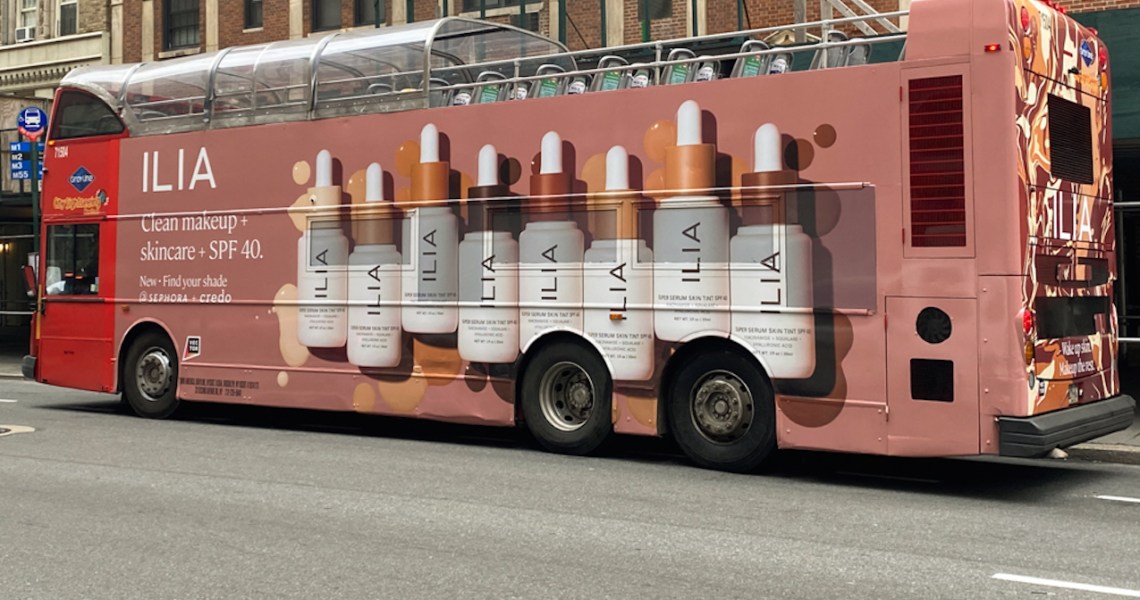As beauty companies across the board take different tactics to address equity, inclusivity and diversity, from sharing employee statistics via Pull Up For Change to launching mentorship funds for founders of color, few plans have corresponded to the end customer directly.
Of course, more inclusive foundation and concealer shade ranges have continued to be the standard since Fenty Beauty came to market in 2017, with debuts still rolling out like Credo’s Exa, which launched in August. But some beauty companies, like Ilia Beauty, have recognized that inclusive launches have to have the adequate employee education and support to be a success.
Right before the pandemic in February, Ilia launched its latest complexion product, a serum skin tint in 18 shades. While the launch was planned with a bevy of retail partners including Sephora, Dermstore and Credo, where it ultimately did launch, Lynda Berkowitz, Ilia Beauty CEO, worked with customer experience firm The Workforce Pro to “guide the customer”directly on IliaBeauty.com.
“One of the biggest adjustments that you have as you become a DTC brand is to make sure you have resources to allocate to a launch or campaign, and the expertise to back it. This was our most inclusive launch, but also very personal, so helping people find their formula over email, chat and virtually had to be done effectively, and that became even more important once Covid hit,” said Berkowitz.
Ty Givens, founder and CEO of The Workforce Pro, worked with Ilia to bring on a senior manager and four frontline e-commerce workers (of all ethnicities, including Caucasian and Hispanic), to answer all chats, emails and queries. Workforce Pro hires were then trained to understand undertones and shade ranges. Since Ilia’s serum skin tint is a makeup-skin care hybrid product, the idea is that it can be layered for no-makeup makeup looks or fuller coverage. The Workforce Pro has also worked with Thrive Causemetics.
“What’s happening now is is a lot of companies are just slotting in a Black employee or a brown employee in marketing campaigns or in roles to say they hit a stat or because of public pressure, without understanding the customer journey,” said Givens.
But emphasis on the customer experience is why Berkowitz believes the launch has been so successful, thus far. Since February, the serum skin tint has been the brand’s No. 1 best-seller, since its debut surpassing its previously best-selling mascara. It’s had two sell-out periods and a 20,000-plus person waitlist in the summer. The brand last restocked the range on its own site in September, and Ilia also has seen a more than 200% sales increase on Sephora.com since the start of the pandemic. Berkowitz firmly said replenishment has not been the source of Ilia’s growth in 2020.
Givens added that, while many brands still think of CX in terms of promotions and shipping times, this emphasis on inclusion is especially important for new launches in the makeup category, as the sector has struggled during the pandemic. In the third quarter of 2020, NPD Group found that makeup sales declined 31% year-over-year to $1.4 billion.
“The customer is becoming smarter. She sees through if a brand is backing up their inclusivity claims from beginning to end,” said Givens. “Of course, the product has to work, but you can’t just expect to show ethnically diverse women in an Instagram ad or marketing campaign, and for that to be enough to say you’re a woke brand.”




